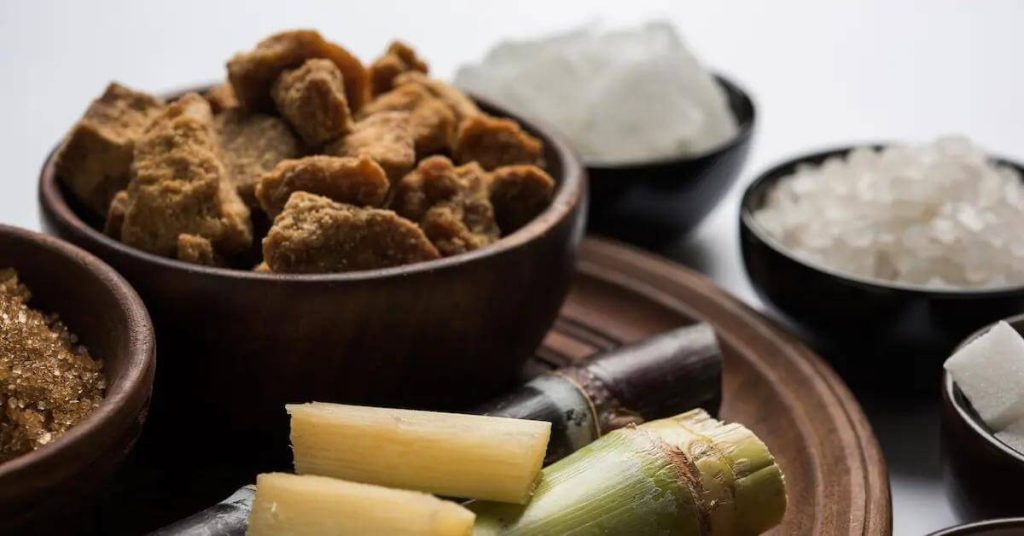Cane Sugar Processing: Key Technologies for Superior Sugar Manufacturing
Cane Sugar Processing: Key Technologies for Superior Sugar Manufacturing
Blog Article
A Thorough Review of the Wellness and Economic Implications of Walking Cane Sugar Processing on Local Communities
Walking stick sugar processing plays an essential role fit the financial landscape of neighborhood communities, offering work possibilities and promoting secondary sectors. Nevertheless, the health ramifications connected with high sugar intake can not be ignored, as they add to rising rates of weight problems and diabetic issues. This nuanced dynamic welcomes a crucial exam of how communities can enhance economic gains while resolving journalism wellness challenges they deal with. The expedition of sustainable techniques and instructional initiatives might simply hold the trick to fixing up these clashing passions. What approaches might neighborhoods apply to achieve this balance?
Financial Advantages of Walking Stick Sugar Processing
Walking cane sugar handling uses substantial economic advantages that expand beyond the prompt agricultural industry. The growing and processing of sugarcane create many task opportunities, from farming to production and distribution. This employment generation not only supports local economic situations but also promotes area advancement by supplying stable revenue sources for families.
Moreover, the sugar sector promotes ancillary services, consisting of transportation, equipment supply, and packaging solutions (Cane Sugar Processing). As these fields expand, they contribute to a more durable financial framework, boosting overall area strength. The export potential of refined walking stick sugar further magnifies economic advantages, positioning areas as competitive players in global markets
Financial investment in modern-day handling centers can lead to increased productivity and effectiveness, consequently minimizing waste and maximizing source usage. This shift not only profits the neighborhood economic situation however also supports sustainability efforts by decreasing ecological effects.
Moreover, the income generated from walking stick sugar processing can be reinvested in neighborhood facilities, education and learning, and medical care, promoting holistic area growth. Generally, the financial advantages of walking cane sugar handling are complex, giving a structure for enduring success in farming areas.
Health And Wellness Threats Related To Sugar Intake
Too much sugar usage poses considerable health and wellness dangers that warrant significant attention. High intake of included sugars, particularly from refined drinks and foods, has been connected to many health difficulties.
Additionally, high sugar consumption is related to cardiovascular condition. Elevated blood sugar level levels can cause insulin resistance, a precursor to numerous heart-related issues. Furthermore, sugar can have detrimental impacts on oral health and wellness, leading to tooth cavities and gum tissue disease, as germs in the mouth thrive on sugar, producing acids that deteriorate tooth enamel.
Additionally, arising study suggests a potential web link in between high sugar intake and psychological wellness disorders, such as clinical depression and anxiousness. As neighborhoods face these health dangers, it ends up being necessary to advertise awareness and motivate much healthier dietary selections. Dealing with sugar usage is crucial not just for specific wellness but likewise for the total health of local communities, stressing the need for detailed public health techniques.
Ecological Impacts of Sugar Production
Frequently neglected in conversations about sugar's implications is the significant environmental effect of sugar manufacturing. The farming of sugarcane frequently requires substantial land usage, leading to logging, loss of biodiversity, and disturbance of neighborhood environments. The conversion of woodlands and marshes into sugar vineyards can cause environment damage, harmful many species and altering ecological equilibrium.
In addition, sugar production is resource-intensive, consuming substantial amounts of water for watering. This why not try this out can result in deficiency of neighborhood water resources, adversely affecting both farming techniques and neighborhood access to tidy water. In addition, using chemical fertilizers and pesticides in sugarcane farming can add to dirt destruction and water air pollution, as overflow from these chemicals gets in neighboring rivers and lakes, influencing water life and human health.
The ecological impact reaches the handling phase, where power intake and waste generation further worsen environmental issues. Air pollution from shedding sugarcane fields, along with greenhouse gas discharges, add to climate adjustment. Therefore, the ecological effects of sugar production warrant serious consideration, urging stakeholders to take on more sustainable methods to reduce these adverse impacts on local ecological communities and areas.
Job Development and Community Growth
The environmental difficulties posed by sugar production are usually reversed by its possibility for economic benefits, especially in work creation and neighborhood growth. The walking cane sugar industry serves as a substantial source of employment in several backwoods, giving tasks across various skill levels, from farming labor to processing and distribution roles. This employment not just supports private family members yet likewise contributes to the general economic vitality of local neighborhoods.
Additionally, the establishment of sugar processing facilities promotes supplementary organizations, such as transportation services, devices supply, and upkeep service providers. As these organizations thrive, they create added jobs and boost regional economic situations. The earnings created from the sugar industry likewise leads to increased tax profits, which can be reinvested into social work such as education and learning, healthcare, and infrastructure advancement.
Moreover, the sugar market often participates in neighborhood development efforts, such as supporting neighborhood schools and health programs, thereby improving the quality of life for citizens. By cultivating solid community connections and advertising economic development, the walking stick sugar handling industry plays an essential role in uplifting neighborhood populations, making it a vital part of lasting growth strategies in sugar-producing regions.
Harmonizing Health and Economic Growth
In browsing the intricacies of cane sugar processing, an important challenge hinges on balancing health and wellness factors to consider with economic growth. The sugar sector significantly contributes to regional economic climates by creating work, stimulating related fields, and enhancing tax obligation incomes. Nonetheless, the health ramifications connected with too much sugar usage can lead to chronic diseases such as weight problems, diabetes, helpful hints and cardio concerns, which can burden public health systems and decrease labor force performance.

Moreover, regulatory structures can play a crucial role in directing market techniques towards more sustainable and health-conscious techniques. By fostering collaboration in between government bodies, health organizations, and the sugar market, communities can browse the duality of health and wellness and economic growth, making sure that the benefits of walking stick sugar handling are equitably shared while prioritizing public health and wellness.
Verdict
Finally, the handling of walking cane sugar presents both considerable economic advantages and noteworthy health and wellness threats for neighborhood areas. While it cultivates work creation and stimulates regional growth, the associated health issues, especially relating to weight problems and diabetes mellitus, demand a careful harmonizing act. By advertising accountable consumption and investing in community education and learning and sustainable practices, it is possible to make the most of economic benefits while reducing adverse wellness impacts, thus guaranteeing a healthier future for regional populaces.
In addition, sugar can have destructive effects on oral my response wellness, resulting in tooth cavities and periodontal condition, as microorganisms in the mouth thrive on sugar, generating acids that erode tooth enamel.
Dealing with sugar consumption is critical not just for private health yet likewise for the general well-being of neighborhood neighborhoods, highlighting the need for comprehensive public health and wellness techniques.
Regularly forgotten in conversations about sugar's ramifications is the significant ecological effect of sugar manufacturing. The health and wellness effects associated with excessive sugar consumption can lead to chronic conditions such as obesity, diabetes mellitus, and cardio issues, which can worry public health systems and lessen labor force efficiency.

Report this page